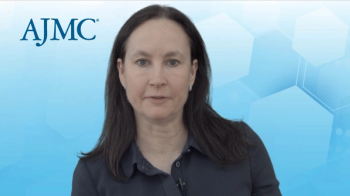
Laura Ferris, MD, PhD, professor of dermatology, University of Pittsburgh, shares 16-week safety and efficacy data from the FRONTIER 2 clinical trial on JNJ-2113 for patients with moderate to severe plaque psoriasis.

Laura Ferris, MD, PhD, professor of dermatology, University of Pittsburgh, shares 16-week safety and efficacy data from the FRONTIER 2 clinical trial on JNJ-2113 for patients with moderate to severe plaque psoriasis.

Krystyn Van Vliet, PhD, vice president for research and innovation at Cornell University's Meinig School of Biomedical Engineering, discusses using engineered 3D platforms to identify potential multiple sclerosis (MS) drug candidates.

Research presented at the American Academy of Dermatology Annual Meeting 2024 explored the impact of social determinants of health on hidradenitis suppurativa severity.

AnaptysBio's senior vice president of research, Martin Dahl, PhD, discusses therapeutic strategies and pathophysiological approaches to treating patients with atopic dermatitis (AD).

Jeff Stark, MD, vice president and head of medical immunology, UCB, shares phase 3 study results of bimekizumab-bkzx given for up to 48 weeks in patients with moderate to severe hidradenitis suppurativa (HS).

Experts at the American Academy of Dermatology Annual Meeting shared results of research into various topical and systemic therapies for atopic dermatitis (AD) and hidradenitis suppurativa during a late-breaking abstract session.

Presented posters showed that moderate to severe atopic dermatitis (AD) in skin of color can be treated with either biologic or topical therapies.

In patients with moderate to severe atopic dermatitis, nemolizumab demonstrated good durability of response, explained Jonathan Silverberg, MD, PhD, MPH, FAAD, of George Washington University School of Medicine and Health Sciences.

Treating pediatric and adult patients with hidradenitis suppurativa (HS) who are in socioeconomically underserved areas can be done through collaboration with the patient, their family, and other clinicians in the field.

Pictures of darker skin with vitiligo make up more than three-quarters of Google searches for pictures of vitiligo, according to posters.

Monica Li, MD, medical and cosmetic dermatologist and clinical assistant professor, University of British Columbia, discusses how microneedling can address both aesthetic and medical dermatological needs across different skin types.
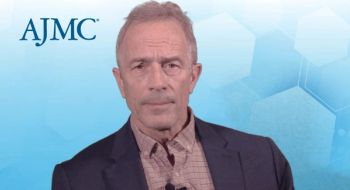
Robert Sidbury, MD, MPH, FAAD, division head of dermatology at Seattle Children's Hospital and professor of pediatrics at the University of Washington School of Medicine, discusses what makes a dermatology practice successful and the challenges that come with running a practice.

A session held at the American Academy of Dermatology Annual Meeting 2024 highlighted the ways in which atopic dermatitis can be treated and addressed in adults and older adults.

There are key factors to consider when selecting which patients with atopic dermatitis (AD) are suitable candidates for oral Janus kinase (JAK) inhibitors, explained Raj Chovatiya, MD, PhD, associate professor at the Rosalind Franklin University Chicago Medical School and founder and director of the Center for Medical Dermatology and Immunology Research.

A physician-reported outcomes survey found that physicians switched to ruxolitinib cream due to lack of effectiveness with previous atopic dermatitis (AD) treatments, and an analysis of claims data revealed the cream reduced the need for other treatments.

Amy S. Paller, MD, chair of dermatology, Feinberg School of Medicine at Northwestern University, discusses aspects of this year's American Academy of Dermatology (AAD) conference she is most excited about.

The American Academy of Dermatology (AAD) will host its annual conference in San Diego from March 8 to March 11, 2024, which will include sessions about Janus kinase (JAK) inhibitors, biologics, and other treatments for skin disorders.
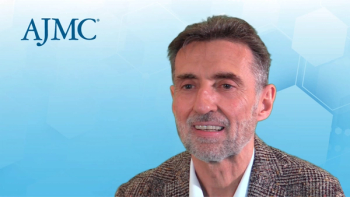
While the results of evolutionRMS, comparing evobrutinib with teriflunomide, were negative, that "doesn't mean that evobrutinib is not working," said Xavier Montalban, MD, PhD, director of the Multiple Sclerosis Center of Catalonia (Cemcat).

Ateyeh Soroush, a PhD candidate at the University of Calgary, explains her ongoing study utilizing near-infrared spectroscopy (NIRS) to investigate hypoxia-related brain function impairment in patients with multiple sclerosis (MS).
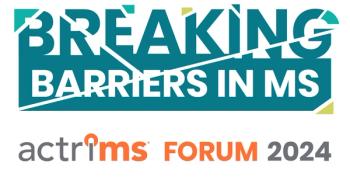
The poster session at the Americas Committee for Research and Treatment in Multiple Sclerosis (ACTRIMS) Forum 2024 dedicated a section to emerging developments in the use of artificial intelligence (AI) in research and treatment approaches in multiple sclerosis (MS).

Speakers on the final day of the Americas Committee for Research and Treatment in Multiple Sclerosis (ACTRIMS) Forum 2024 discussed advancements in rehabilitation trials in multiple sclerosis (MS) and unmet research needs.

Kathy Zackowski, PhD, associate vice president of the National Multiple Sclerosis (MS) Society, discusses the importance of MS rehabilitation and lists several successful strategies.

On day 2 of the Americas Committee for Treatment and Research in Multiple Sclerosis (ACTRIMS) Forum 2024, speakers gave great attention to novel developments in the field of imaging and 3D modeling in multiple sclerosis (MS).
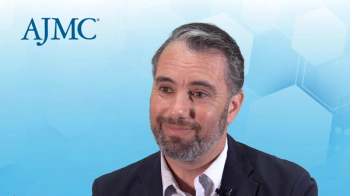
Ari Green, MD, of the University of California, San Francisco, details the benefits of remyelination for patients with multiple sclerosis (MS), as well as the challenges faced when conducting remyelination trials.

Friday's keynote speaker, Katherine A. Meese, PhD, addressed the conference theme of workforce support at the Association of Cancer Care Centers 50th Annual Meeting and Cancer Center Business Summit.

Mitzi Joi Williams, MD, founder and medical director of Joi Life Wellness Multiple Sclerosis (MS) Center, explains the issue of underrepresentation in MS clinical trials and the potential for digital health technologies to help overcome this barrier.

Krystyn Van Vliet, PhD, vice president for research and innovation at Cornell University, discusses MS drug discovery barriers and overcoming them using 3D platforms.
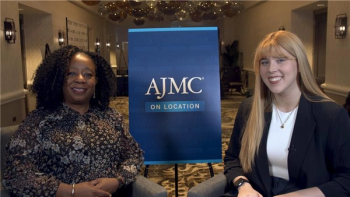
Interviews with Katherine Meese, PhD, of University of Alabama at Birmingham, and Nadine Barrett, PhD, MS, MPH, of Wake Forest University, from day 2 of the Association of Cancer Care Centers 50th Annual Meeting & Cancer Center Business Summit (ACCC AMCCBS).

Young investigators spoke to emerging metabolic and cognitive research in multiple sclerosis (MS) at the Americas Committee for Treatment and Research in Multiple Sclerosis (ACTRIMS) Forum 2024.

Speakers at the Americas Committee for Treatment and Research in Multiple Sclerosis Forum 2024 focused their attention on avenues to improve research accessibility for investigators and care access for patients with multiple sclerosis (MS).

259 Prospect Plains Rd, Bldg H
Cranbury, NJ 08512
© 2025 MJH Life Sciences®
All rights reserved.
